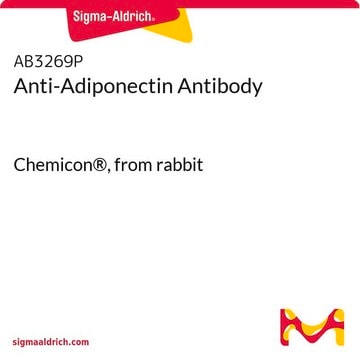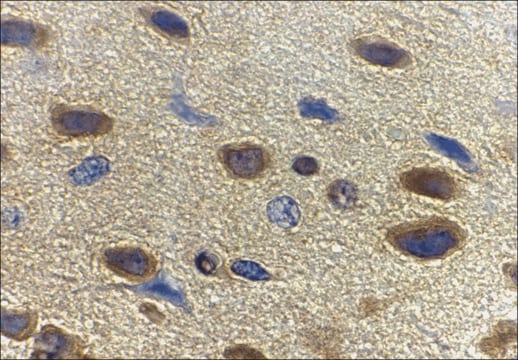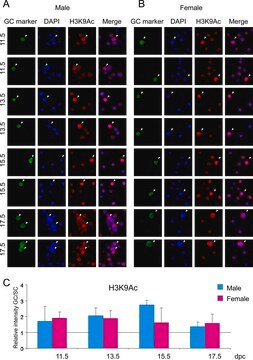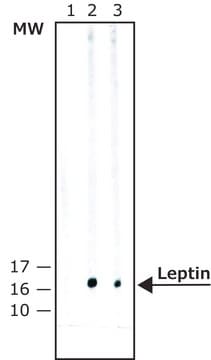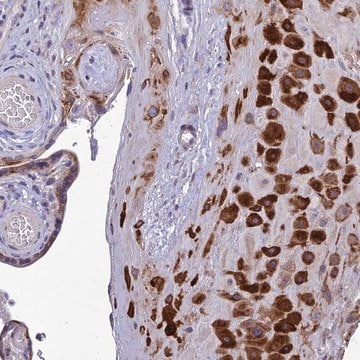Fontos dokumentumok
A6354
Anti-Adiponectin antibody produced in rabbit
~1 mg/mL, affinity isolated antibody, buffered aqueous solution
Szinonimák:
Adiponectin Antibody, Anti-Adiponectin antibody produced in rabbit, Anti-Adipocyte Complement-Related Protein of 30 kDa
About This Item
Javasolt termékek
biológiai forrás
rabbit
Minőségi szint
konjugátum
unconjugated
antitest forma
affinity isolated antibody
antitest terméktípus
primary antibodies
klón
polyclonal
form
buffered aqueous solution
faj reaktivitás
mouse, human
koncentráció
~1 mg/mL
technika/technikák
western blot (chemiluminescent): 0.5-1 μg/mL using using human plasma or placenta, or an extract of differentiated 3T3-L1 mouse cells.
UniProt elérési szám
kiszállítva
dry ice
tárolási hőmérséklet
−20°C
célzott transzláció utáni módosítás
unmodified
Géninformáció
human ... ADIPOQ(9370)
mouse ... Adipoq(11450)
Általános leírás
Egyediség
Immunogen
Alkalmazás
Western Blotting (1 paper)
Biokémiai/fiziológiai hatások
Fizikai forma
Jogi nyilatkozat
Nem találja a megfelelő terméket?
Próbálja ki a Termékválasztó eszköz. eszközt
Tárolási osztály kódja
10 - Combustible liquids
WGK
WGK 3
Lobbanási pont (F)
Not applicable
Lobbanási pont (C)
Not applicable
Analitikai tanúsítványok (COA)
Analitikai tanúsítványok (COA) keresése a termék sarzs-/tételszámának megadásával. A sarzs- és tételszámok a termék címkéjén találhatók, a „Lot” vagy „Batch” szavak után.
Már rendelkezik ezzel a termékkel?
Az Ön által nemrégiben megvásárolt termékekre vonatkozó dokumentumokat a Dokumentumtárban találja.
Tudóscsoportunk valamennyi kutatási területen rendelkezik tapasztalattal, beleértve az élettudományt, az anyagtudományt, a kémiai szintézist, a kromatográfiát, az analitikát és még sok más területet.
Lépjen kapcsolatba a szaktanácsadással
